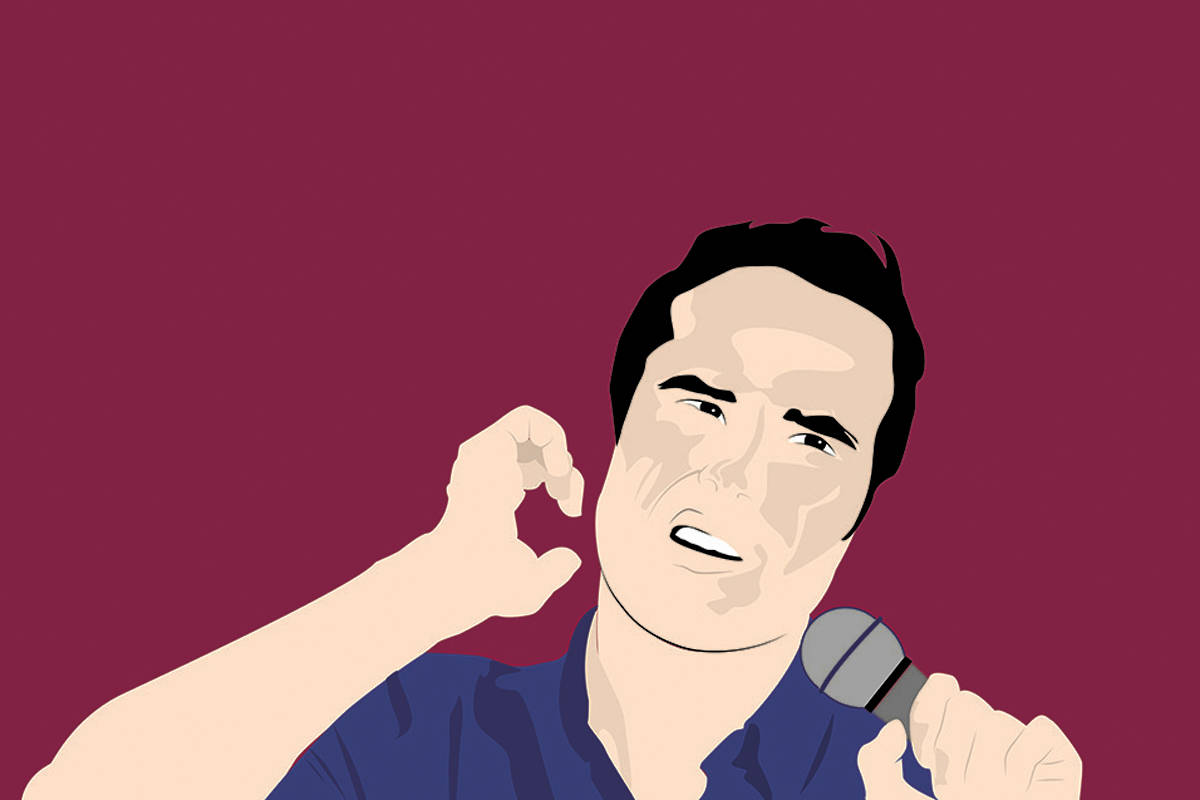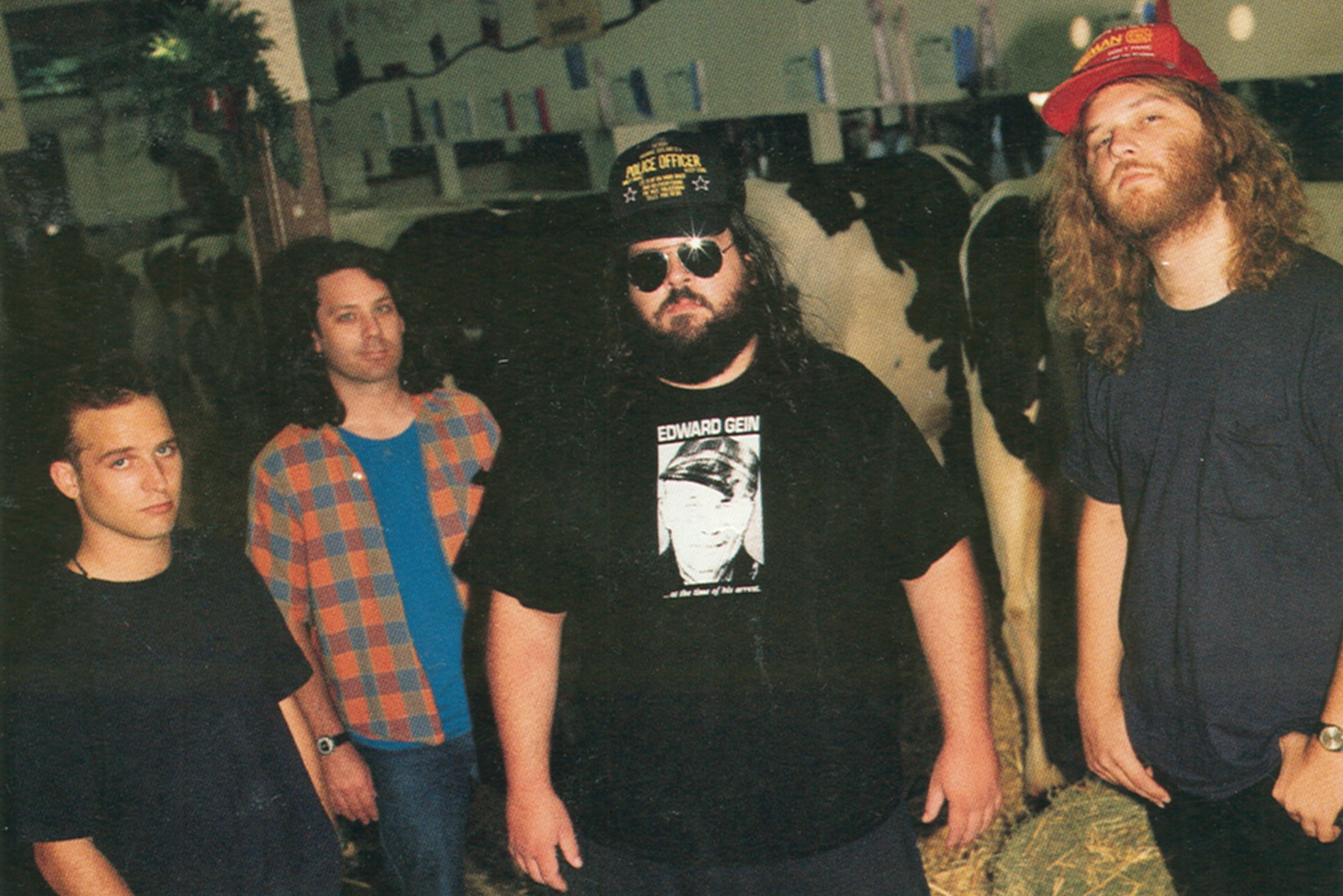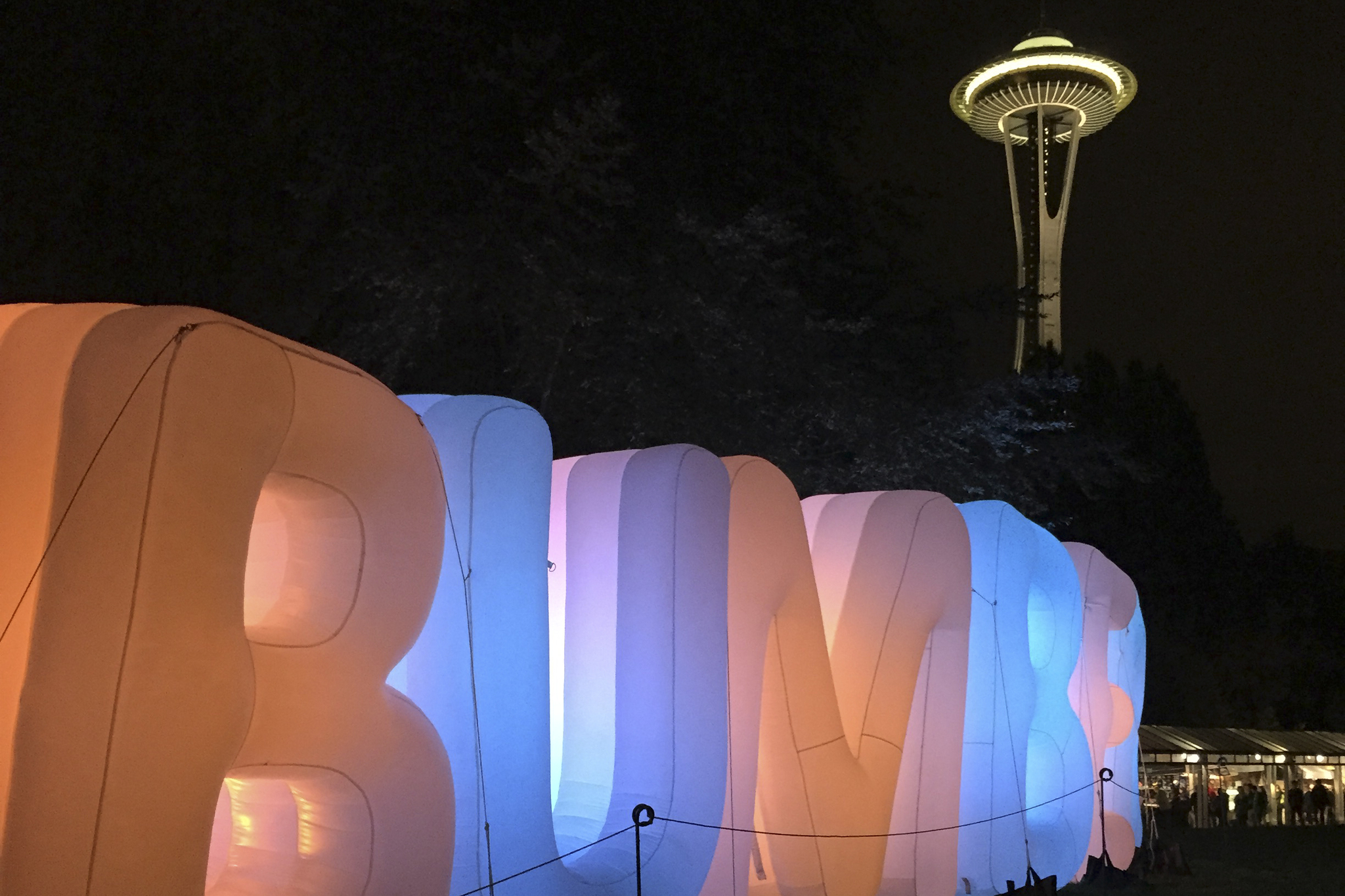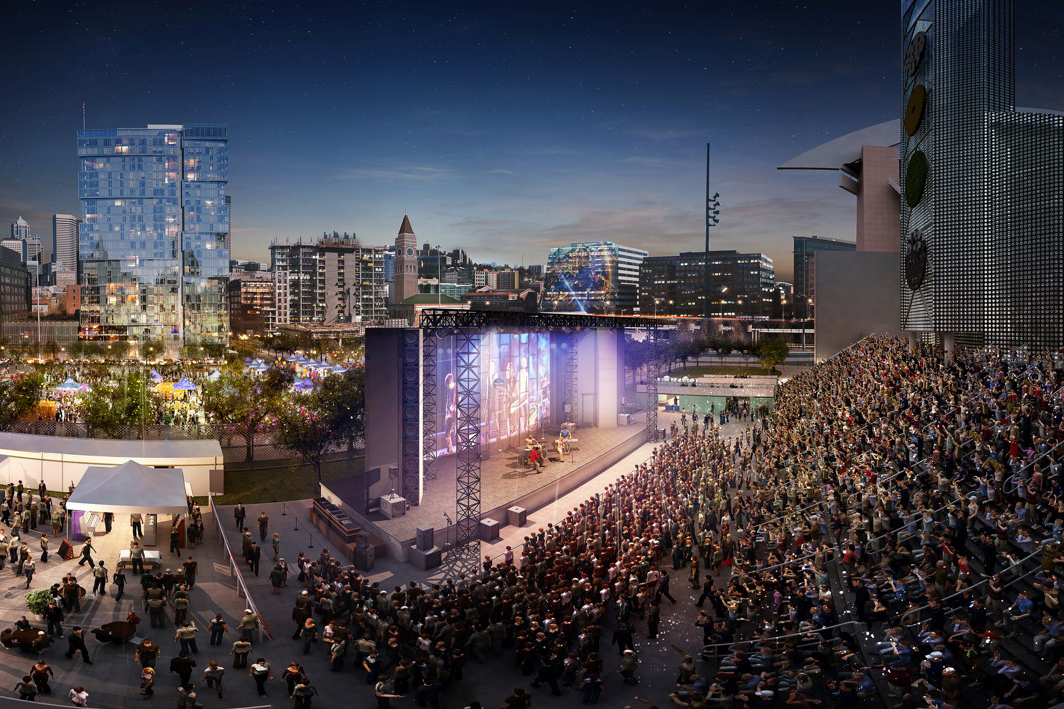Dave LakeTitle Fight’s Ned Russin. Heading into the Showbox at the Market on Friday night for Quicksand’s first Seattle show in nearly 20 years was a lot like getting into a time machine and traveling back to 1995, a year when Bill Clinton served as America’s first black president, Timothy McVeigh bombed the Oklahoma City Federal Building and Eazy-E died of complications from AIDS. Were it not for all the receding hairlines and expanding waistlines in attendance (and supporting act Title Fight), the evening could have been a completely anachronistic experience, as sweaty dudes in Sick of It All t-shirts moshed to a dozen and a half Quicksand songs inside a never-aging Showbox, just as they presumably did circa the mid-’90s.Led by Walter Schreifels, a veteran of seminal hardcore bands Gorilla Biscuits and Youth of Today (and later, Rival Schools), Quicksand quickly made a name for themselves and their post-hardcore riffs, releasing a pair of major label albums before breaking up just as quickly after several years of relentless touring. But time (or at least money) heals all, and after a reunion show last year to celebrate the 25th anniversary of Revelation Records, the band reformed for their first North American tour in 15 years.Rather than push new songs or look forward, Quicksand focused their energy on their legacy via their pair of well-reviewed but commercially tepid – at least by major label standards – releases, 1993’s Slip and 1995’s Manic Compression. The quartet took to the stage obscured by a blanket of fog-machine fog and green lasers and quickly ripped into “Omission” from their debut, bass strings rattling, gloomy guitar riffs pounding. The quartet was efficient and tight throughout the set, reminding showgoers that despite their solid albums, Quicksand are best experienced live, where the power of their punk and hard rock influences can be experienced in full — and at full volume.Schreifels was particularly animated, flinging his guitar around and gesticulating like a more-restrained Perry Farrell. Schreifels’ charisma was confined to the songs, however. There was minimal between-song chatter and his first words to the audience didn’t arrive until halfway through the set. It was all business for the band, who presented an effective case for why they were important for a brief moment in time. Their workman-like no-frills live show was a perfect match for the no-nonsense nature of their recorded output. Unlike more modern punk acts like Green Day and Blink-182, whose frontmen are as much carnival barkers as singers, Quicksand let their music do all the talking.Title Fight, a suburban Pennsylvania four-piece, opened, providing a more modern hardcore sound that fluctuated between speedy pop-punk and moodier post-hardcore, with bassist Ned Russin and guitarist Jamie Rhoden trading off on vocals. The band’s 2011 debut, Shed, was produced by Schreifels, who seemed to serve as a sort of de facto through line Friday, as one generation of hardcore paid tribute to the one that came before it.
More Stories From This Author
Capitol Hill Block Party Artist Panel Series 2019
The Capitol Hill Block Party Artist Panel Series 2019 is free (no festival wristband required), all-ages, and takes place from…
By
Seattle Weekly • July 9, 2019 11:10 am
Golden Idols will release new EP
Seattle quartet returns with ‘Uneasy’
By
Seattle Weekly • June 24, 2019 5:30 pm
Travis Thompson, Wolf Parade headline Fisherman’s Village fest
The Everett Music Initiative festival, May 16-18 in Everett, will showcase more than 50 acts.
By
Evan Thompson • March 18, 2019 12:00 pm







